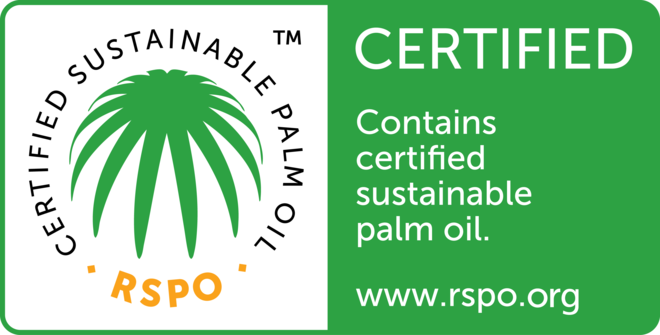RESPONSIBLE CONSUMPTION AND PRODUCTION
Source >>>

The world, with it’s media, ability to seek information and growing passion for the environment, has in recent years made strong links between the use of palm oil and deforestation. We know that this relentless slaying of our global forests endangers not only wildlife but also the temperature of our planet… but what is the truth about the palm oil ‘boycott’? Is the oil itself the main problem here? We weigh some things up for you…

What is palm oil?
Palm oil is an edible vegetable oil that comes from the fruit of oil palm trees. The scientific name is Elaeis guineensis, and 86% of palm oil is produced in Indonesia and Malaysia. There are two types of oil that can be produced; crude palm oil comes from squeezing the fleshy fruit, and palm kernel oil comes from crushing the kernel, or the stone in the middle of the fruit.
Why is it so bad?
Palm oil is cheap and efficient to produce, and so demand has increased rapidly since 1995 at 15 million tonnes, to 65 million tonnes in modern day. It can now be found as an ingredient in 50% of packaged supermarket products! Despite this, there are some really concerning issues with our reliance on palm oil that currently give it such a bad rep…
- Growing oil palms is creating large scale deforestation. 5.5 million hectares of forest have already been lost to forest clearance for the purpose of new plantations, and the equivalent of 30 football pitches of rainforest continue to be destroyed every minute for various uses, including palm cultivation. Cutting down so many trees is rapidly adding to global warming, and is threatening already endangered species through destruction of their habitat and ecosystems.
- Pesticide use has increased to keep up with the rate of production demand. 25 different pesticides are used in Indonesian palm plantations alone! Not only are the chemicals harmful to wildlife, but could also harm plantation workers and pollute the landscape for many years to come.
- Palm oil production has been linked to the theft of land, known as ‘land-grabbing’. Farmers and indigenous communities may have relied on land for many years previously, however the land may be claimed for palm oil plantations instead, which leads to conflict and an increased inability of those communities to provide for themselves.
What are the plus points?
Despite there being many negative repurcussions of the production of palm oil, there is another side to the story…
- Other alternative oils could actually lead to a further increase in deforestation, and so alternatives are not necessarily better. For example, the yield of palm oil is three times higher per hectare of land than rapeseed oil!
- Removing palm oil completely would mean millions of workers that rely on the production of palm in rural parts of Malaysia and Indonesia would lose their livelihoods and jobs – 4.5 millions people in these countries earn a living directly from the palm oil industry, and in Indonesia a further 25 million depend of the production process. Palm oil production has also enabled many communities to escape poverty by owning and utilising their own farmland.
- Palm oil is used as a fuel that is non-toxic and renewable across the EU – 45% of all palm oil use is as biodiesel.
So what’s the real issue here?
It appears that palm oil itself isn’t the issue. Production has helped to support many communities and it’s use as a clean biofuel is a surprisingly undervalued benefit. The issue is created in the unsustainable production of the oil rather than the product itself. There is little regulation in the destruction of rainforest areas, and it is currently very difficult to trace whether the palm oil in products was truly produced sustainably.
What’s the solution?
It’s clear that the blanket boycotting of palm oil could cause further damage to not only communities but. perversely, additional destruction to rainforest areas. Where the oil has become an essential ingredient with many other benefits as a fuel, sustainable production is really the only viable solution. According to WWF, both companies and consumers have a big role to play!
For consumers:
- Support sustainable palm oil production by using the Palm Oil Buyers Scorecard provided by WWF to compare retailers, manufacturers, and food service companies on their palm oil use.
- Contact your favourite companies via social media and email to request that they do more to support sustainable palm oil production.
- Discuss the issue with your friends and family and explain the pros and cons. You might even want to share this on your own social media accounts!
- Look for the RSPO certified logo on products that you purchase.
For businesses:
- Join the Roundtable on Sustainable Palm Oil (RSPO) and contribute to their mission.
- Source products exclusively from suppliers that adopt and implement a deforestation free policy.
- Understand your supply chain and require suppliers to have traceability to the palm oil source.
- Ensure transparency by reporting on palm oil sources and usage.
- Support policy action in producer and consumer countries which tackles deforestation and conversion.
- Commit publicly plans to phase in the buying of RSPO certified sustainable palm oil exclusively.
- Undertake public communication and outreach on sustainable palm oil.
Posted by Claire Edwards15 February 2021

